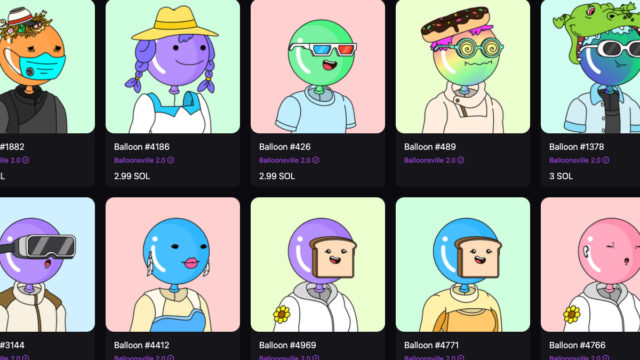“People with funds locked in Celsius Network have been sending letters to the judge presiding over the Chapter 11 bankruptcy case. These are excerpts from those letters.” Periodically updated with new excerpts, as new dockets get released.
““I couldn’t eat or sleep for two nights,” says Alla Driksne, a 34-year-old chef from London. “I got sick from the stress.” She has lost her life savings – a six-figure sum – in the Celsius freeze. “
A few months before Celsius went belly-up, one of their customers called in to Scam Economy — here’s a clip that includes both the pre-crash call, and some post-crash reflections. Notably, the guy isn’t a hype-man, or an enthusiastic crypto fan. He just seems sorta sad and anxious about his money, and he’s also pretty sad and anxious about Celsius’ drawbacks, but somebody convinced him that every other option is worse:
“The top #1 Google result for “blockchain production users” (and related queries) lists 34 individual “real world blockchain” projects. […] Looking into all 34, I found that 13 are already dead (including one that has been killed by the SEC), 6 are only useful within the crypto & NFT ecosystems and not in the “real world” and 14 use Blockchain in a way where removing the blockchain would not impact functionality at all, or make the product better.”
One of the big pseudo-success stories is IBM (backers of IBM FoodTrust, a system hyped by WalMart). At least, until early 2021: “IBM has cut its blockchain team down to almost nothing, according to four people familiar with the situation. “
Really enjoy this podcast interview with a climate analyst, who’s familiar with Crypto Nonsense but whose first area of expertise is fighting climate change, doing a well-informed deconstruction of the “Bitcoin is good for the environment somehow” arguments.
“The bug caused a misplacement of decimal points when refunding pavladiv.near’s USN. Instead of returning 4.9995 USN (about $5), the smart contract bug minted 4.9995 trillion USN for the user on both occasions, thus creating almost $10 trillion out of thin air.” Oooops. (These are the same people who will say “USD is unreliable because the government can just print as much money as they want”…)
“Power companies don’t take bitcoins or tethers. But the crypto trading system was running low on naïve retail suckers to supply fresh dollars. So the miners needed to do their part in propping up the price of bitcoin. Their solution was to avoid selling their bitcoins, and instead to hold them and use them as collateral against low-interest loans.”
“I left my easy six figure job in crypto because I couldn’t stand to market to such a deranged group of individuals and the toxic web3 workplace. Even though I even enjoy some aspects of crypto… the online crypto communities are extremely bizarre, mentally unwell, deranged, and socially inept. […] AMA in the comments! I need to vent.”
“A London-based software company has just launched CloneMyNFT.com which offers NFT owners the ability to “keep their NFT artwork forever” even after they have sold it. […] The system works by creating an exact digital copy of the artwork but with another unique contract on the block chain, effectively making it an almost exact clone of the original NFT.”
Note: this has been possible for as long as NFTs have existed! The only change is having a convenient site that’ll process all the code automatically.
“You don’t know anything about the metaverse but you want to do like all the best marketers around and write something on the web about it? Don’t worry, Tony is here for you and will give you all the advice you need to write the most impactful article about the metaverse ever. I have a structure that will make you jump ahead of all the competition. Follow me!” (This is so perfect, I love it so much.)
“The entire crypto space has been a Jenga stack of interconnected time bombs for months now, getting ever more interdependent as the companies find new ways to prop each other up.” The Latecomer’s Guide to Crypto Crashing.
